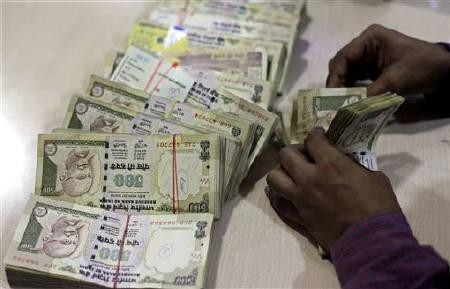
India's growth story sees no sign of significant revival, with the United Nations on Thursday forecasting the nation's economic growth at 6.7 percent for 2012.
The forecast proved to be a disappointment for the country, given that the economy grew 7.1 percent in 2011. The international organization in January predicted growth rate at 7.7 percent for the current year and 7.9 percent in 2013.
The projections were published in United Nations' recent report titled "World Economic Situation and Prospects 2012" that's updated till June this year.
On Wednesday's meeting on infrastructure, Prime Minister Manmohan Singh admitted that the economy is facing a severe situation. "After achieving remarkably high growth rates over the past eight years and emerging as the second-fastest growing economy in the world, we are now running into more turbulent weather. The global economy is passing through difficult times. This has affected us," The Times of India quoted the PM as saying.
Earlier in March, the PM said that the growth needs to surge to 9 percent, a rate India has achieved for several years before 2008.
Meanwhile, South Asia is also expected to witness an economic slowdown in 2012, with growth projected at a 5.6 per cent, down from 6.1 percent from the previous year. However, regional GDP growth is likely to pick up to 6.1 percent sometime in 2013, the UN said in the report.
The UN projected the overall global economy to grow 2.5 percent this year and then surge to 3.1 percent the subsequent year. Previous year's growth was recorded at 2.7 percent.
According to the UN, the ongoing debt crisis in Europe is cited as the biggest threat and main reason behind the sluggishness of the global economy. "An escalation of the crisis could result in severe turmoil in financial markets and a sharp rise in global risk aversion, leading to a further weakening of global growth," the report said.
The organization is not too optimistic about economic activity in the eurozone, saying that that growth may stagnate well into 2012 despite the possibilities of preventing further impact across the nations.
Several developed economies are still reeling from the after-effects of the deep financial crisis in 2008 and 2009, with the report citing various reasons for the slowdown. Amongst them are the high unemployment rate and the ongoing deleveraging by banks, firms and households that hampered normal credit flows are cited as cause and effect of weak economic recovery.
Unemployment rates in the US are beyond pre-crisis levels at over eight percent, the report said.
The organization also said the new fiscal policies in many of the developed countries, specifically in Europe, should implement long-run fiscal sustainability measures in order to help prevent further deepening of economic woes.
"Premature fiscal austerity should be avoided and, while necessary, fiscal consolidation should focus on medium-term, rather than short-term adjustment," the report said.














